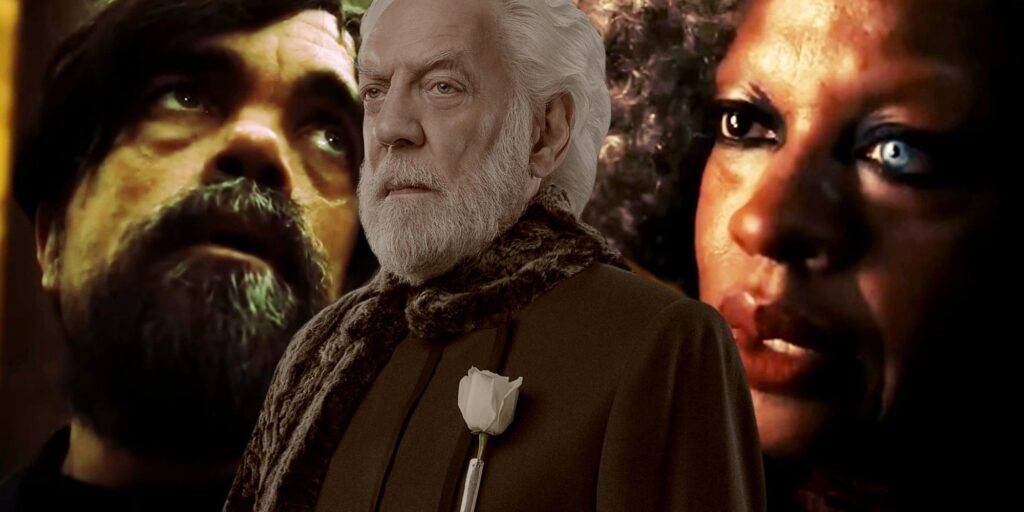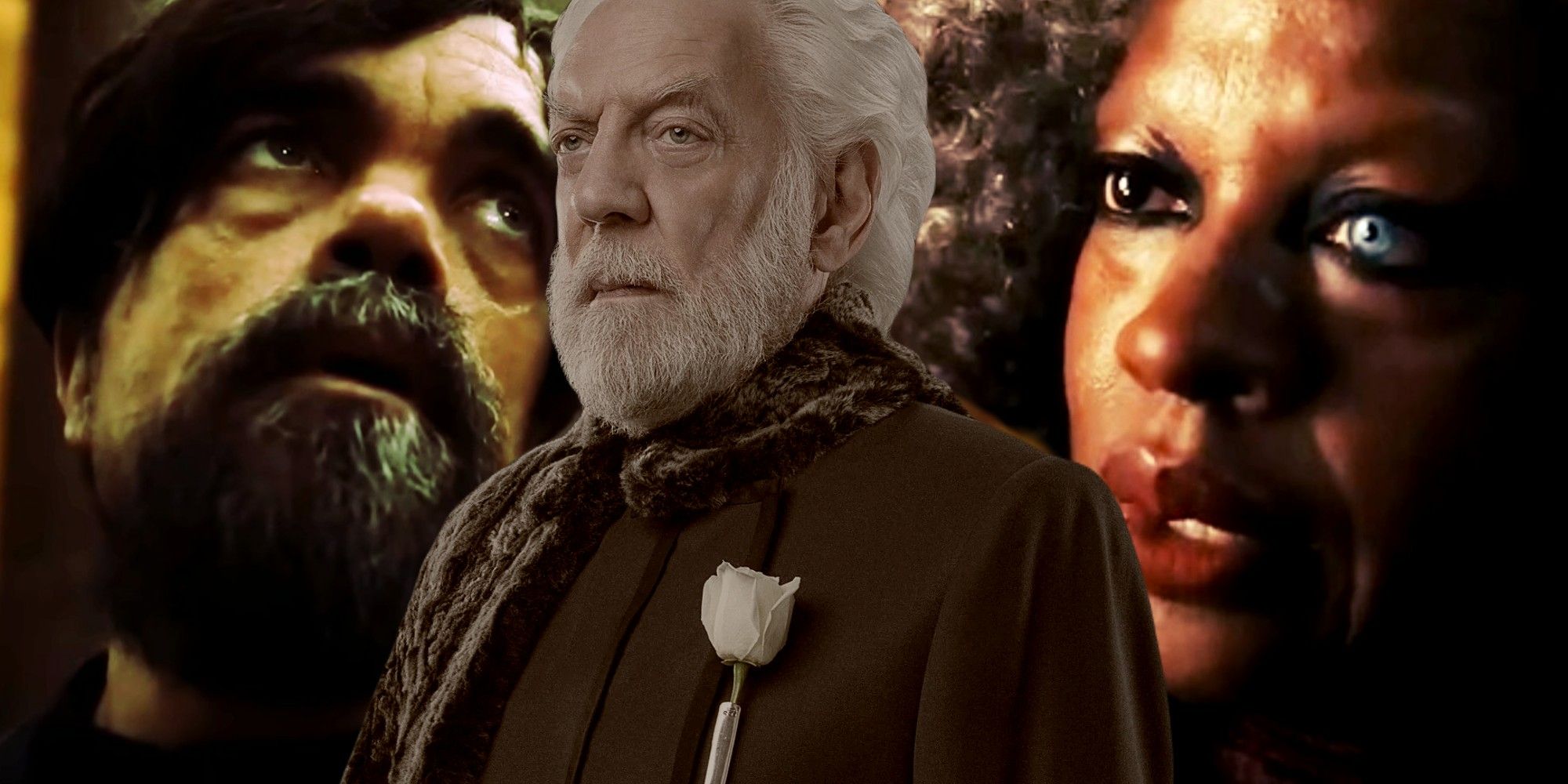
Who Is the Gamemaker in The Hunger Games? Unveiling the Architects of Survival
In Suzanne Collins’ dystopian masterpiece, The Hunger Games, the Gamemakers are the architects of the arena, the orchestrators of the Games’ deadly challenges, and the puppet masters behind the televised spectacle. But who exactly are these figures, and what role do they play in the Capitol’s twisted entertainment? Understanding the position of the Gamemaker in The Hunger Games is crucial to grasping the complexity of Panem’s oppressive regime and the resilience of its rebellious citizens. This article aims to delve into the world of the Gamemaker in The Hunger Games, exploring their responsibilities, their motivations, and their impact on the lives of the tributes.
The Role of the Gamemaker
The Gamemaker in The Hunger Games holds a position of immense power within the Capitol’s hierarchy. They are responsible for designing and executing the annual Hunger Games, a brutal competition where children from the twelve districts are forced to fight to the death as punishment for past rebellion and as entertainment for the Capitol’s elite. Their duties extend far beyond simply creating a physical arena; they must also craft a narrative, manipulate the environment, and influence the tributes’ actions to ensure a compelling and dramatic spectacle.
Here’s a breakdown of the Gamemaker’s key responsibilities:
- Arena Design: The Gamemaker conceptualizes and constructs the arena, a carefully crafted environment that serves as the stage for the Games. This includes selecting the terrain, weather conditions, and placement of resources.
- Challenge Creation: They design the obstacles, traps, and muttations (genetically engineered creatures) that the tributes will face. These challenges are designed to test the tributes’ skills, push them to their limits, and create dramatic moments for the audience.
- Event Management: During the Games, the Gamemaker monitors the tributes’ progress and can trigger events, such as fires, floods, or the release of muttations, to influence the course of the competition.
- Narrative Control: The Gamemaker subtly shapes the narrative of the Games by highlighting certain tributes, manipulating the environment to favor certain outcomes, and influencing public perception through the televised broadcasts.
- Scoring and Judging: While the tributes ultimately decide their own fate, the Gamemaker plays a role in judging their skills and determining the overall entertainment value of their performance.
Notable Gamemakers in The Hunger Games
Several Gamemakers are featured prominently throughout The Hunger Games trilogy, each with their own distinct personality and approach to the Games:
Seneca Crane
Seneca Crane serves as the Head Gamemaker in the 74th Hunger Games, the Games in which Katniss Everdeen and Peeta Mellark participate. He is portrayed as ambitious and eager to please President Snow. Crane’s desire to create a thrilling spectacle leads him to make controversial decisions, such as allowing two tributes from the same district to win if they are in love. This act of defiance, perceived as a challenge to the Capitol’s authority, ultimately leads to his execution.
Plutarch Heavensbee
Plutarch Heavensbee replaces Seneca Crane as the Head Gamemaker in Catching Fire. He initially appears to be a loyal servant of the Capitol, but he is secretly a key member of the rebellion. Heavensbee uses his position to manipulate the 75th Hunger Games (the Quarter Quell) to facilitate Katniss’ escape and ignite the rebellion. His actions demonstrate the potential for subversion within the Gamemaker ranks.
The Unnamed Gamemakers
While Seneca Crane and Plutarch Heavensbee are the most prominent Gamemakers, the series also features a supporting cast of unnamed individuals who contribute to the design and execution of the Games. These figures represent the broader system of oppression and the Capitol’s unwavering commitment to maintaining its power through fear and spectacle.
The Gamemaker’s Psychology and Motivation
The Gamemaker in The Hunger Games is not simply a technician or a game designer; they are complex individuals with their own motivations and psychological profiles. Some are driven by ambition, seeking to climb the ranks within the Capitol’s hierarchy. Others are motivated by a desire to create a compelling spectacle, viewing the Games as a form of art or entertainment. Still others may be driven by a sense of duty or a belief in the Capitol’s ideology.
However, regardless of their individual motivations, all Gamemakers are complicit in the Capitol’s oppression. They participate in a system that dehumanizes and exploits the districts, perpetuating a cycle of violence and fear. Their actions raise ethical questions about the nature of power, the responsibility of individuals within oppressive systems, and the seductive allure of spectacle.
The Gamemaker as a Symbol of Power
The Gamemaker in The Hunger Games serves as a powerful symbol of the Capitol’s control over the districts. Their ability to manipulate the environment, control the tributes’ fates, and shape public perception highlights the vast power imbalance between the ruling elite and the oppressed masses. The Games themselves are a carefully constructed performance designed to reinforce the Capitol’s dominance and suppress any potential rebellion.
The Gamemaker’s role in this performance is crucial. They are the architects of fear, the orchestrators of despair, and the enforcers of the Capitol’s will. By understanding their role, we can gain a deeper appreciation for the themes of oppression, resistance, and hope that resonate throughout The Hunger Games.
Analyzing the Ethics of Game Design
The concept of the Gamemaker in The Hunger Games presents a chilling exploration of the ethics of game design taken to the extreme. While real-world game designers strive to create engaging and entertaining experiences, the Gamemakers use their skills to inflict suffering and perpetuate a system of oppression. This raises important questions about the responsibility of creators and the potential for technology to be used for both good and evil.
Consider these points:
- The Power of Narrative: The Gamemakers understand the power of narrative and use it to manipulate public opinion and control the tributes’ actions. This highlights the importance of ethical storytelling and the potential for narratives to be used for propaganda or manipulation.
- The Dehumanization of Participants: The Games dehumanize the tributes, reducing them to mere pawns in a televised spectacle. This underscores the dangers of objectification and the importance of treating all individuals with dignity and respect.
- The Responsibility of Creators: The Gamemakers are ultimately responsible for the suffering they inflict. This raises questions about the ethical obligations of creators to consider the potential consequences of their work.
The Gamemaker’s Influence on the Rebellion
Despite their role in perpetuating the Capitol’s oppression, the Gamemakers inadvertently contribute to the rebellion. Seneca Crane’s decision to allow two tributes to win sparks hope in the districts and demonstrates the potential for defiance. Plutarch Heavensbee’s secret allegiance to the rebellion allows him to manipulate the Games to facilitate Katniss’ escape and ignite the revolution.
These instances highlight the inherent contradictions within the Capitol’s system of control. Even those who are tasked with enforcing the regime can be swayed by their own conscience or motivated by a desire for change. The Gamemaker in The Hunger Games, therefore, becomes a symbol of both oppression and resistance, a reminder that even within the darkest of systems, hope can still emerge.
The Legacy of the Gamemakers
The Gamemaker in The Hunger Games remains a powerful and enduring symbol of oppression, control, and the ethical dilemmas inherent in the creation of entertainment. Their actions serve as a cautionary tale about the dangers of unchecked power and the importance of individual responsibility. By examining their role, we can gain a deeper understanding of the themes that make The Hunger Games such a compelling and relevant story.
The question of who is the Gamemaker in The Hunger Games goes beyond just identifying individuals. It’s about understanding the system they represent, the power they wield, and the choices they make. It’s about recognizing the potential for both good and evil within each of us, and the importance of standing up against oppression in all its forms. [See also: The Hunger Games: Mockingjay Analysis]
Ultimately, the legacy of the Gamemaker in The Hunger Games is a reminder that even in the face of overwhelming power, resistance is possible, and hope can endure.

